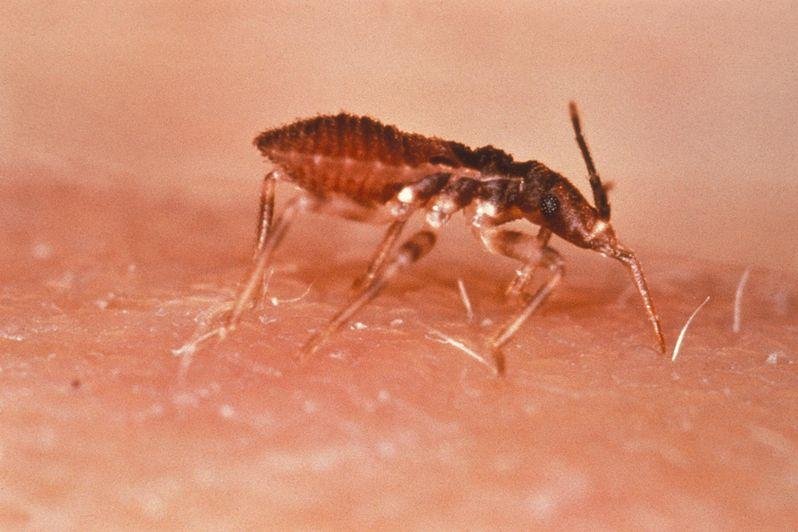A blood-sucking kissing bug. (CDC/World Health Organization)
NEW ORLEANS, Nov. 5 (UPI) -- In 2012, researchers from Baylor College of Medicine in Houston called Chagas the "New HIV/AIDS of the Americas" in a research paper highlighting the growing presence of the "kissing bug" disease in the United States. This week, the same researchers reiterated their concerns over the growing presence of Chagas infections in North America.
Chagas disease -- called a silent killer because the parasitic infection is difficult to detect at its onset, with few to no symptoms -- has mostly been considered a problem confined to Latin America. But health officials are increasingly worried the disease is globalizing.
Chagas is spread by kissing bugs, sometimes called assassin bugs, blood suckers that often attack the face of vertebrates at night while they sleep. The bug deposits a parasite via its feces. If the parasite enters the body through breaks in the skin and takes hold, it can eventually lead to heart disease, organ damage and premature death if untreated.
In a presentation at the American Society of Tropical Medicine and Hygiene meeting in New Orleans on Tuesday, epidemiologist Melissa Nolan Garcia and her team of researchers detailed their most recent work with Chagas. The scientists have been traking 17 Houston-area residents infected with the disease.
Garcia told attendees that at least six of the patients appear to have contracted the disease in the United States. The research team also relayed their analysis of local kissing bug populations in south-central Texas, reporting that half of 40 collected specimens showed evidence of having fed on human blood.
Because of the difficulty detecting and diagnosing the infection, researchers are concerned the disease is too often being left untreated and leading to heart complications in Texas.
"We're the first to actively follow up with positive blood donors to assess their cardiac outcomes and to determine where southeastern Texas donors may have been exposed to Chagas," Garcia said in a press release. "We are concerned that individuals who test positive are not seeking medical care or being evaluated for treatment. And even if they do seek medical care, we heard from some patients that their primary care doctors assumed the positive test represented a 'false positive' due to low physician awareness of local transmission risk."
"We were astonished to not only find such a high rate of individuals testing positive for Chagas in their blood, but also high rates of heart disease that appear to be Chagas-related," Garcia added.
Though experts say the chances of infection in the United States are still extraordinarily low, Garcia and others warn the disease may be more prevalent than previously thought. In analyzing blood bank contributions in Texas, researchers found that 1 in 6,500 donors tested positive for Chagas exposure -- 50 times higher than the CDC's estimate.















